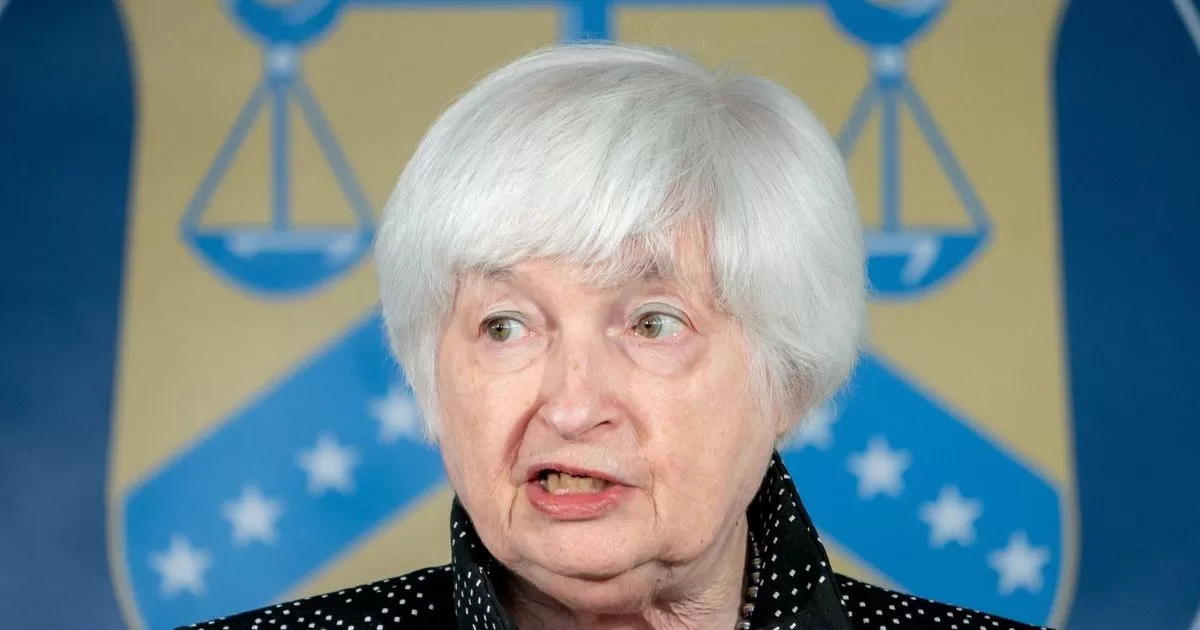WASHINGTON– As expected, the Joe Biden government and especially the Treasury Secretary, Janet Yellen, those responsible for Fitch’s downgrade of the United States’ debt rating note, raised a cry to heaven.
The confirmation of fitch deprives the United States of its perfect AAA debt rating due to deteriorating governance in the country.
The credit rating agency’s decision to downgrade the US debt rating to AA+ is “unjustified,” said Treasury Secretary Janet Yellen.
According to Yellen, the agency’s assessment does not correspond to the current vigor of the world’s largest economy. And it seems that Yellen sees neither her mistakes nor the critical situation caused by the Biden administration to the US economy with record inflation in the last five decades, a mortgage crisis, a banking crisis and a crisis at the border, among others. The debt, with a war on its back and an extensive list of organizations and governments, sponsored by the Biden government have created the worst economic conditions for the country in decades.
“Fitch’s decision is surprising considering the strength of the economy we are seeing in the United States. I deeply disagree with Fitch’s decision, and I think it is totally unjustified,” the official said during a visit to a tax center in McLean. (Virginia). Apparently, the Secretary of the Treasury still hasn’t landed, much like she did when she spent more than a year reiterating that inflation in the US was temporary.
“The evaluation is based on outdated data and does not reflect the improvements in many indicators, including those of governance, that we have observed for two and a half years” since Biden occupies the White House, argued his Economy Minister.
Of course, the decision directly touches Yellen’s lousy job at the head of the Treasury and her visible dependence on the designs of the White House.
“Fitch’s decision doesn’t change anything: Treasury bonds are the world’s number one safe and liquid asset, and the US economy is on solid fundamentals,” Yellen thinks she’s been wrong on multiple occasions.
The Fitch agency warned at the end of May that it could review the triple A rating of the US debt downwards, if it raised the country’s debt limit to avoid a default.
After the agreement reached in extremis between the two parties, the agency declared that it was keeping the note under surveillance and deplored, in passing, the “political polarization” in the country.
Questioned by CNBC on Wednesday, Fitch’s head of the Americas, Richard Francis, confirmed the decision again.
“Among the important elements for us is the fact that the governments, from both camps, Republicans and Democrats, were not able to find lasting solutions to fix growing fiscal problems.”
“We’ve seen a fairly steady deterioration in governance over the last few decades,” he stressed. This is illustrated by “the ever tightrope resolution of the debt ceiling issue.”
The United States needs to solve the recurrence of the problems linked to its debt issuance limit, and find “long-term” solutions, if it wants to recover triple A, concluded the person in charge of Fitch.
Fitch forecasts a darker near future
The US budget situation is not set to improve, according to Fitch, which forecasts large and persistent deficits for the next two years.
“We expect an increase in the (fiscal) deficit in the next three years,” Francis said.
The agency kept the outlook for the credit rating of the world’s largest economy stable, which means that it does not foresee further cuts to the note in the short term.
To assess the solvency of States, communities or companies, the three main rating agencies in the world -S&P Global, Fitch and Moody’s- use scales of letters or grades, ranging from AAA, considered above any risk, to C or D, which flag potential refund defaults.
The measurements are made by analyzing parameters of economic growth, indebtedness, deficit, expenses, fiscal income, and the diagnosis serves as a guide for investors.
This also means that the lower the assigned note, the higher the interest that investors will ask to lend money to a State or a company, because their debt will be considered more risky.
In 2011, S&P Global stripped the United States of its AAA rating after a lengthy congressional fight over the debt limit, but Moody’s, which has records going back to 1949, continues to give it the top rating.
FOUNTAIN: With information from AFP




